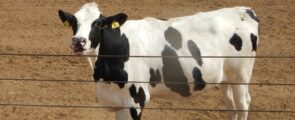 Dairy products so as pasteurized milk, butter, milk powder, yogurt, cheese, and ice cream, etc are produced in special processes under high consumption of water. Additionally there could be stables for cows or other milk producing animals, creating specific waste water. The result is a mixture of different loaded streams and mostly cannot be discharged directly to municipal sewer networks.
Dairy products so as pasteurized milk, butter, milk powder, yogurt, cheese, and ice cream, etc are produced in special processes under high consumption of water. Additionally there could be stables for cows or other milk producing animals, creating specific waste water. The result is a mixture of different loaded streams and mostly cannot be discharged directly to municipal sewer networks.
- Washing water
- process cleaning water CIP
- steam condensate
- boiler blow down
- animal farming
- sanitary waste water
Water Management Concepts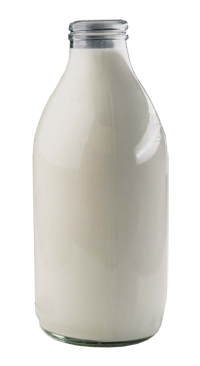 Therefore, it is necessary to study the local situation to reduce the amount of waste water produced and to minimize the loads discharged into the treatment plant. Hence, there is need of a water management and special designed treatment steps for each stream.
Therefore, it is necessary to study the local situation to reduce the amount of waste water produced and to minimize the loads discharged into the treatment plant. Hence, there is need of a water management and special designed treatment steps for each stream.
Waste Water Recycling and Reuse
The dairy industry has high demand of process water for cleaning and different applications, the full waste water treatment is considerable to implement water recycling. The water can be recycled to highest quality and used for cooling, process, washing and also irrigation purpose.
Treatment Steps
MENA-Water uses state-of-the-art plant technology with physical-chemical, biological, or membrane processes, which we customize exactly to the respective specifications. It is frequently necessary to combine processes to achieve optimum results in process water treatment.
- Fine Screening and Grit Removal
- Dissolved Air Flotation (DAF)
- Membrane Bio Reactor (MBR)
- Reverse Osmosis (RO)
- Disinfection
- Sludge treatment
MENA-Water develops, builds, and installs treatment plants for Effluent water, which are tailored to the respective task, economical and environmentally friendly.
Samples for treatment steps :
Ultra Fine Screens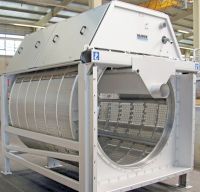
The ultra-fine screens are able to remove undegradable and degradable, inorganic and organic material at the same time. Improved environmental protection is achieved by application of this new technology at reasonable costs.
Chemical precipitation, coagulation and/or flocculation can be added for further improvement of the screening efficiency. Addition of such chemicals converts dissolved substance and colloidal particles into separable aggregates that can be removed. Suspended solids can be reduced by up to 95%, COD/BOD by up to 65% and phosphorus by up to 60%.
Flotation and Flotate Sludge Dewatering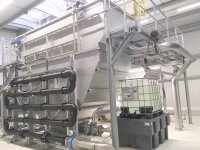 After mechanical treatment the wastewater is further treated within a HUBER Dissolved Air Flotation Plant HDF where free grease and undissolved solids are removed. This intermediate step is necessary to protect the following biological treatment system against free grease. As an option the flotation plant can be installed prior to a chemical treatment stage to increase its efficiency. This solution is frequently selected if indirect discharge quality is sufficient for the effluent. Elimination of grease, proteins and undissolved material of up to 95% will also reduce the BOD/COD load.
After mechanical treatment the wastewater is further treated within a HUBER Dissolved Air Flotation Plant HDF where free grease and undissolved solids are removed. This intermediate step is necessary to protect the following biological treatment system against free grease. As an option the flotation plant can be installed prior to a chemical treatment stage to increase its efficiency. This solution is frequently selected if indirect discharge quality is sufficient for the effluent. Elimination of grease, proteins and undissolved material of up to 95% will also reduce the BOD/COD load.
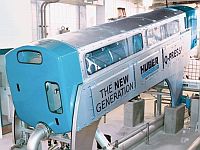 The HUBER Q-PRESS® Screw Press has proven its high efficiency in dewatering flotate and excess sludge.
The HUBER Q-PRESS® Screw Press has proven its high efficiency in dewatering flotate and excess sludge.


